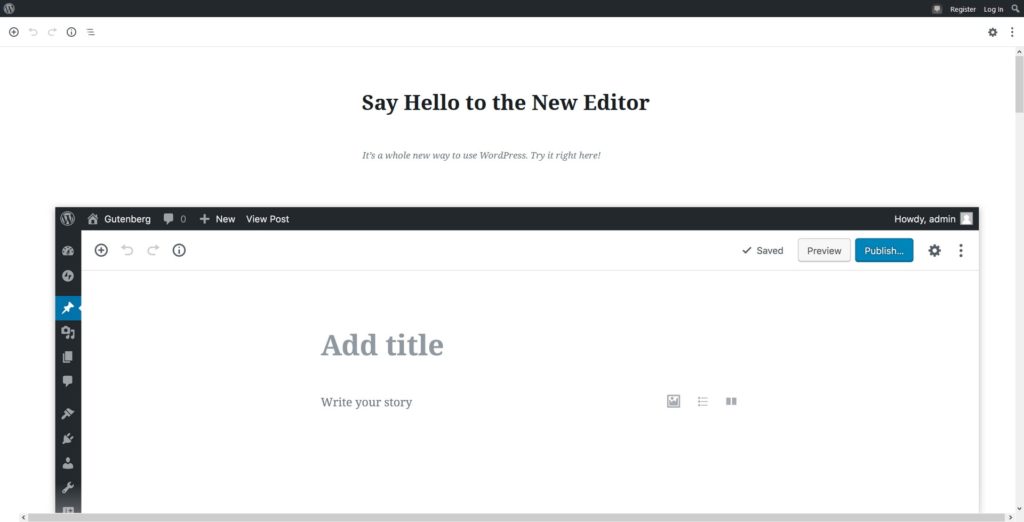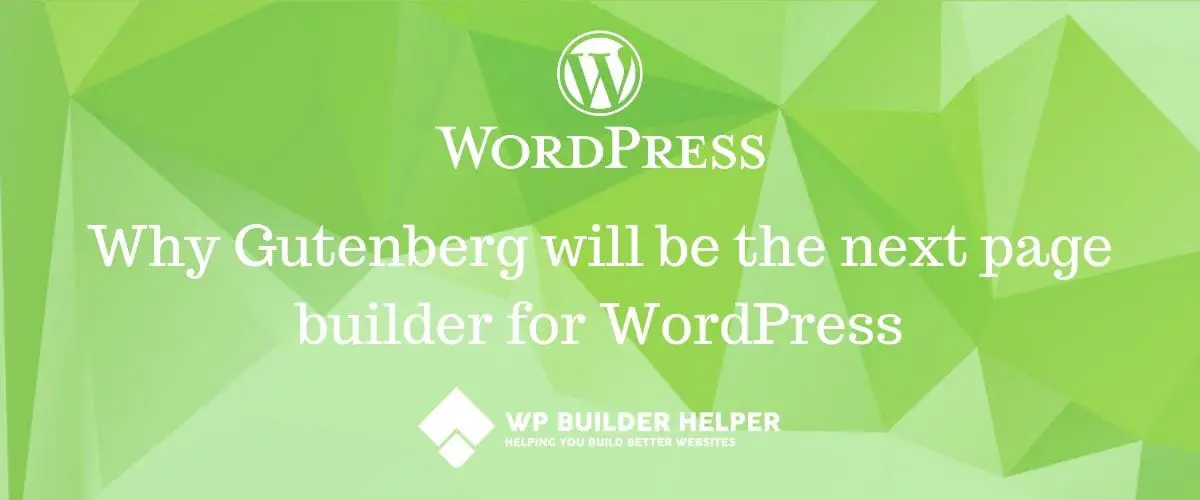If you are new to WordPress, you might not have heard of some page builders on the market. It is unlikely that you haven’t heard of Gutenberg. Will it looks like Automattic the company behind Gutenberg has released a curious plugin called, full site editing.
If you read our previous article we had made mention that Gutenberg has been watching page builders closely.
In this article we will find out why Gutenberg getting into the page builder market is both a good thing and a bad thing. We will cover some problems most people are likely to have for it and even problems that companies might have with Gutenberg gaining more ground.
Why is Gutenberg anyone concerns?
If you are new to WordPress a few months ago WordPress updated their TinyMCE that has
Fast forward to today and you find that Gutenberg is still not a liked program. It has 2 stars in the WordPress repository and it’s not gaining any favors with time. It’s even caused some people to find alternatives to WordPress.
So people might ask, why make Gutenberg a part of WordPress? Simple, competition. WordPress is the most used service on the web by far. It beats all the different services such as Wix, Squarespace and even things like Joomla which is the closest competition to WordPress.
WordPress is also keeping a careful eye on things like what users want. The recent most common thing is a full page builder which allows you to build things like pop-ups, headers, footers, 404 pages and much more
.
Users want full control over websites and don’t really care about themes which in the past have limited them with a selection of headers and footers. Mark my words, WordPress will eventually be theme independent meaning it won
The goods news about Gutenberg
The great news is that with Gutenberg becoming a big threat to smaller and even larger publishers this will push innovation into more of a direction that benefits all users. When there is little or no competition everyone loses because no one has to do much to beat out the other developers.
Now that Automattic is stepping into the game the tables have changed. WordPress will force these smaller developers to set up their game otherwise Gutenberg will probably replace them since
Having Gutenberg installed on all WordPress installs will be something that will make it easier for people customizing sites themselves to change. This will
The bad news about Gutenberg
Besides some negative things listed above Gutenberg doesn’t have a strong reputation right now. Essentially, it is like that of Internet Explorer which comes installed with Windows however
Another downside of all of this, is if Automattic is pushing hard to make Gutenberg a full page builder then where will that put the rest of the page builders on the market? It might force cost down as a free alternative will probably force prices but does that mean that you win? Most likely it will force smaller developers to fall out of the market.
Things like Brizy or Oxygen would probably not exist if there was a free alternative that everyone used that worked half as good. Problem with this theory is that Gutenberg has not worked half a good, most reviewers mention several pieces of the software that
What’s any of this mean for WordPress

WordPress needs to tread carefully. That they are putting so much effort into this new builders is nice, but it’s a double-edged blade. Gutenberg could be a giant flop that sends many of the more seasoned users running because they have already decided it’s not what WordPress should be.
It also means that WordPress is picking sides. In all this time that WordPress has been out it has never solved a bunch of issues that exist with the software such as SEO, Security and much more.
If they will jump into the arena of page builders then why not SEO and Security? These are giant holes in the WordPress code that would
Patrick @ Wpbuilderhelper.combe easily cleaned up with Automattic taking these over.
Problem is
Gutenberg the beginning or the end for WordPress?
I think like all great projects we have to give Automattic time to prefect what Gutenberg really is and allow it to develop so it will benefit the community at large. While some might only see Gutenberg as a giant problem introducing something new creates new doors for WordPress.
Now a new market will emerge and it will be one where WordPress gurus are solving Gutenberg flaws with other plugins. This will make its own submarket if Automattic continues to push WordPress which is never a bad thing.
One thing I feel is uncertain is themes. I’ve said it before and I will say it again. I think their time is limited and I think the end is coming. Themes will go away one day, they surely won
Conclusion
With that in mind, I do not have a crystal ball and everything above is my opinion and theory crafting on the subject. If it interests you in learning more about our page builder tutorials we publish them monthly to keep the users of this blog updated.





